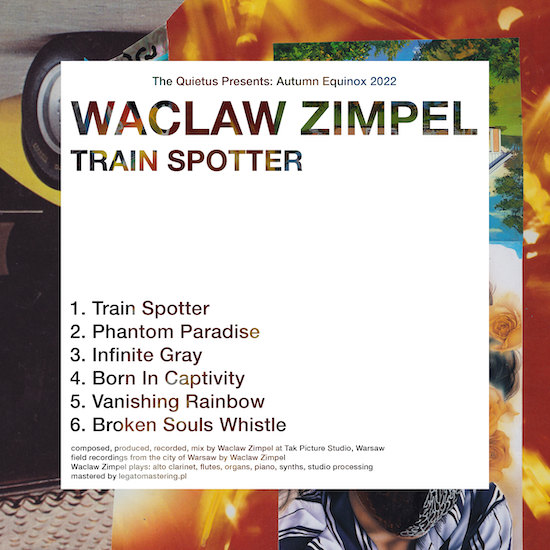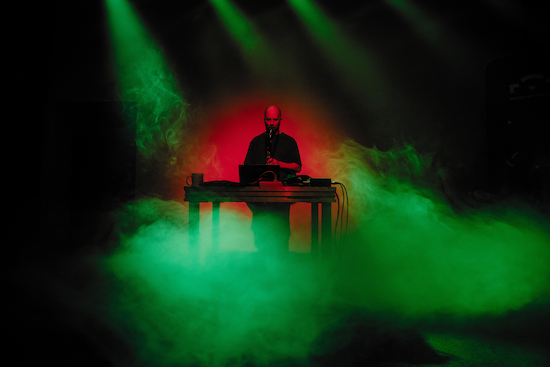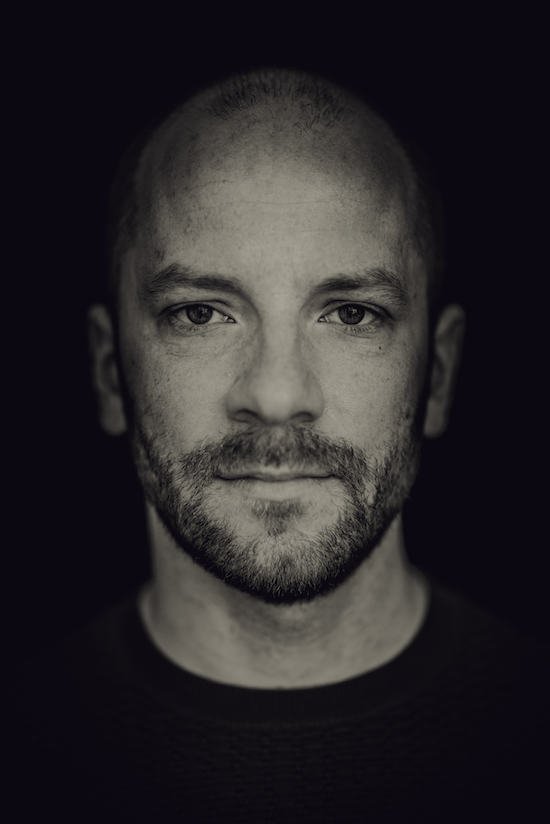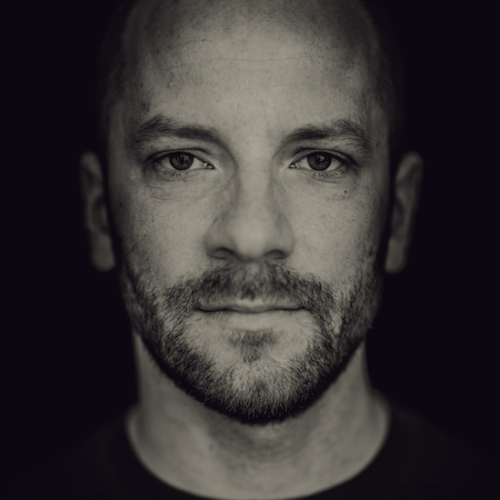Photo by Jacek Poremba
In the seven years since Waclaw Zimpel released debut solo album Lines, composer, clarinettist and producer Waclaw Zimpel has gone from being an outlier among his generation of Polish jazz musicians to one of the most creative and original electronic artists to have emerged from his homeland. And, indeed, the rest of Europe.
“A lot has changed,” he considers. “I feel more like a music producer now. Of course my instruments, especially the clarinet, are a central part of my musical vocabulary. But I feel that right now studio work is where I can express myself the best.”
Zimpel is speaking with tQ on the release of Train Spotter, commissioned by The Quietus for our Sound + Vision tier subscribers. A compelling and stunning album that’s influenced as much by the musique concrète methodology pioneered by Pierre Henry as it is by the increasing electronics path that he’s taken over the last seven years, this work once again finds Zimpel looking forwards, rather than in the rearview mirror.
Nevertheless, it’s worth taking our own look backwards at his career to date. A restless artist forever seeking new avenues and areas to explore, he’s loath to repeat himself, which goes someway to explaining a trajectory of albums that have developed and grown with each subsequent release. Be it partnerships with other like-minded souls such as Kuba Ziołek – their 2017 release Zimpel/Ziołek featured highly on tQ’s Albums Of The Year chart – or learning from more leftfield producers and performers including James Holden and Sam Shackleton, as well as compatriot Siksa and the Indian group Saagara among many others, Zimpel has applied the best lessons from these experiences to his own work, while feeding back equal amounts of creativity to those that he’s worked with.
By his own admission, Zimpel is an instinctive artist. Upon entering Willem Twee Studios in Den Bosch to record what was to become 2020’s Massive Oscillations album, his discovery of vintage synths, oscillators, generators, sequencers, tape recorders and filters saw him jettison his original ideas to start from scratch. “It’s like walking through the forest; like a survival kind of thing,” Zimpel says of his modus operandi. “You have to react to what is happening.”
It’s precisely this approach that Wacław Zimpel has applied to Train Spotter. Having secured a scholarship from the City Of Warsaw in 2021, he set about creating music that was based on the brief of ‘The Sound of the City of Warsaw’.
“I spent many days walking around the city and recording stuff which was interesting for me sonically,” he reveals. “The most interesting sounds for me were those which came from all the communication aspects of the city such as the train stations, for example. I made a lot of recordings of not only train stations, but also tram stops and trams tracks. I also visited the airport to record baggage belts, escalators and lifts. All this kind of stuff that has repetitive movements was super interesting for me.”
Retreating to his home studio, Zimpel began not only manipulating the sounds that he’d recorded, but also placing them within a musical context thanks to his increasing array of synths, keyboards and plug-ins.
“I didn’t want it to be just the experience of the city of sound; I wanted to make it musical and I wanted to find musical forms that would respond to the sounds that I found in the city,” he explains. “I wanted to create musical forms around them. So each piece on this album comes from the different parts of the city or different objects. Each of these sounds was like a springboard for me to finding musical ideas that would work around that.”

Spread over six tracks, the manipulated samples are blended with Zimpel’s own electronic production flourishes and playing to create a seamless blend that’s uniquely his. For all its production methods, Train Spotter is bears an organic warmth that reflects the city that inspired it. But what also adds to the sonic intrigue is a rise in intensity within each of the individual tracks that themselves become ever more forceful as the album continues.
Zimpel counters any notions that this was a deliberate move: “It was very instinctive, especially the final production and mixing. I had very limited time to do this. I’m talking about a few weeks in the summer, around July and August. So I was really working very, very fast. And all the decisions were not premeditated.
“I was going with the flow. And with the order of the pieces, it was a little bit similar. But later on when I was listening back, I can see right now better than before the logic of the sequencing of those pieces.” He adds, laughing: “I would do it the same way right now. Probably.”
So is Train Spotter a reflection of where Warsaw is at the moment?
“It’s difficult to speak in those terms about my music,” ponders Zimpel. “My goal was to make it as good as possible, using all my musical tools, knowledge and instincts. It definitely the reflects the times because I made it right now. Up to what degree, I don’t know. But I think that pretty much everywhere we are dealing with really huge problems.
“I’m trying to be an optimist. And I know that we can survive. We can survive in many weird circumstances, as history has taught us. But I hope that the circumstances aren’t going to be any more horrible than they are now.”
What is certain are Zimpel’s further moves into electronic music and the possibilities that this offers. But, having harnessed a variety of production skills, doesn’t he miss the acoustic sounds of his beloved clarinet?

Photo by Ignacy Tokarczyk
“On the one hand, maybe I miss it a little bit,” Zimpel admits. “You know, going on stage just with the clarinet, closing my eyes and just going with the flow. But, by the same token, I really enjoy this process of creating sounds on a different level. And this is probably as inspiring as it used to be just being in the stream of consciousness. Electronic music is also a kind of stream of consciousness but maybe it’s a little bit slowed down when you are processing sound. You listen much deeper to what you do and I really enjoy the deep listening process.”
He pauses for a moment before adding: “Working with electronics makes me feel like being in front of the unknown. And this is most interesting thing for me: to confront the unknown.”
To receive the new album by Wacław Zimpel, as well as a host of other benefits including exclusive essays, podcasts and playlists, and loads more specially commissioned music, become a Quietus Sound + Vision subscriber. You can do so here



